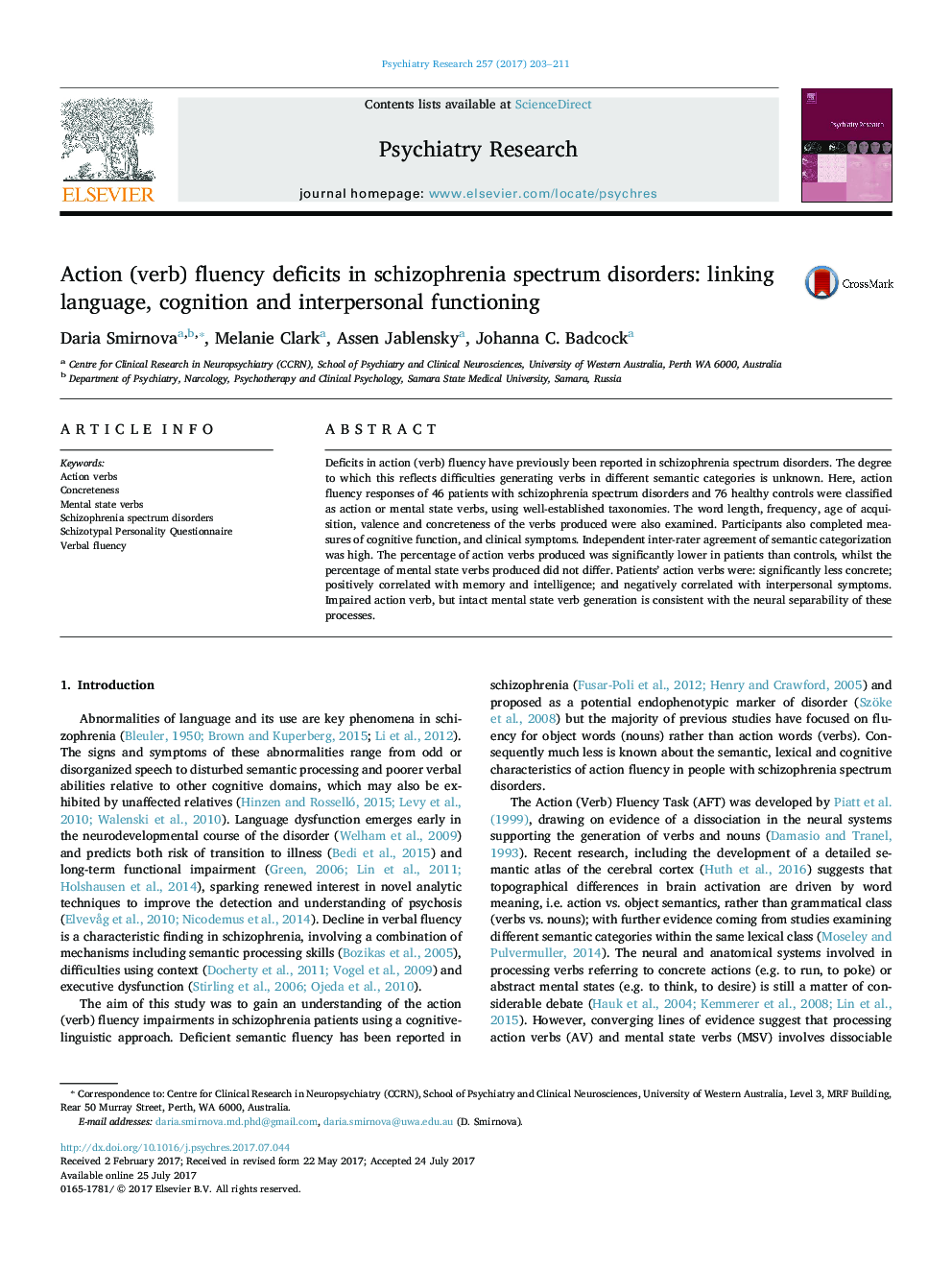| Article ID | Journal | Published Year | Pages | File Type |
|---|---|---|---|---|
| 4933480 | Psychiatry Research | 2017 | 9 Pages |
â¢We used a cognitive-linguistic approach to examine action (verb) fluency.â¢Patients with schizophrenia spectrum disorders generated fewer action verbs only.â¢Action verbs were less concrete, and may indicate atypical semantic representations.â¢Action verbs correlated with intelligence and memory, but not executive function.â¢Action and mental state verbs might be related to different neural processes.
Deficits in action (verb) fluency have previously been reported in schizophrenia spectrum disorders. The degree to which this reflects difficulties generating verbs in different semantic categories is unknown. Here, action fluency responses of 46 patients with schizophrenia spectrum disorders and 76 healthy controls were classified as action or mental state verbs, using well-established taxonomies. The word length, frequency, age of acquisition, valence and concreteness of the verbs produced were also examined. Participants also completed measures of cognitive function, and clinical symptoms. Independent inter-rater agreement of semantic categorization was high. The percentage of action verbs produced was significantly lower in patients than controls, whilst the percentage of mental state verbs produced did not differ. Patients' action verbs were: significantly less concrete; positively correlated with memory and intelligence; and negatively correlated with interpersonal symptoms. Impaired action verb, but intact mental state verb generation is consistent with the neural separability of these processes.
